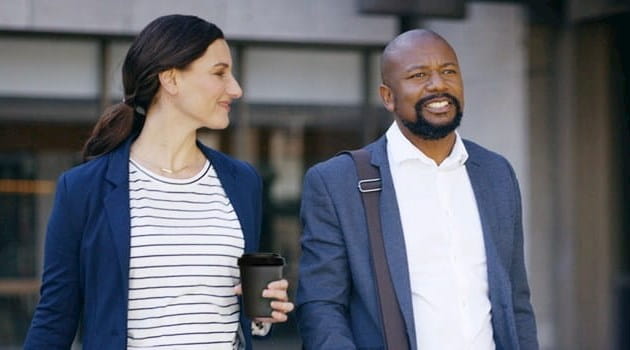“We need personal leadership to trigger action at the kind of pace and scale that will create meaningful change, but in a way that brings others along,” says Jessica Fries FCA, Executive Chairman at Accounting for Sustainability (A4S). “In our work we are seeing people being inspired by some of that fierce leadership – and different groups being motivated by different leading voices.”
Fries points to not only Greta Thunberg – who has helped catalyse action by students around the world – but also to the Prince of Wales. “There is a call for each of us to think about the power that we have in our own hands – and the power of the accounting profession – to drive change.”
Amongst the profession, business and the world at large, we are seeing plenty of motivation to act, and the focus now is shifting away from ‘why’ to ‘how’. “Calls for urgent action are increasing momentum, and we are reaching a tipping point,” says Fries. “If you think of the investment community as an example, you really are seeing collective action throughout the system.”
The capital markets have thrown up some very strong leaders – both in terms of organisations and individuals – who are now putting in place clear, ambitious strategies and detailed plans. “That need for action is underpinned by the very real existential threat the climate crisis might have on each of our lives, livelihoods and futures,” says Fries.
Helen Slinger FCA, Executive Director of A4S, adds: “Leadership with credibility is vital. This means leaders investing themselves personally in the action they take, as well as taking their whole team and organisation with them. It means doing this in a way that demonstrates that they are acting on what they believe in and can therefore inspire others.”
One of A4S’s key programmes is the CFO Leadership Network which works with CFOs in various jurisdictions around the world to define what is meant by sustainable business leadership. “Each of those CFOs brings to the table not only their own personal passion and drive around sustainability, but also the good work that is being achieved by their organisations,” says Slinger. “All of them have the desire to do more, while recognising the challenges they're up against, acknowledging some of the shortfalls in what they've already achieved, and looking for ways to fill those gaps.”
Slinger explains that A4S defines leadership in terms of five dimensions. She says: “There is innovation – doing things in a new and a different way to solve the various challenges that we're all up against. Implementation, which is about making that change and embedding it in business as usual. Inspiration – what you are doing that can actually inspire others and get them to follow you. Then there's influence and how to use the position of leadership to influence others in the supply chain, the investor community, banks, and so on. The fifth dimension is all around impact because, if you're not bringing about social and environmental benefits, what you were exhibiting wasn't leadership in the first place.”
What enables credible leadership to have traction? Is it that we now have so much data – albeit of varying quality – to work with, or is something more immediate underpinning action? “There is a whole suite of different drivers that are making action happen,” says Fries. “This is particularly around climate but there is also the collapse in ecosystems and biodiversity, which is equally a threat to humanity. In addition, there are a lot of pressing social issues, including those resulting from the pandemic, as well as the climate crisis. We have reached that point where the signs of our failure to act are becoming increasingly visible, whether that's in flash floods, extreme heat, forest fires and the other physical impacts of climate change.”
She points out that we are also being jolted to act by evidence from the global scientific community of the implications on people and economics of failing to limit the global average increase in temperatures to below 1.5 degrees. “The evidence is very clear, but everyone is also being touched on both personal and work levels,” she says. “A lot of the CEOs and CFOs we work with talk about some of those moments when they adopted a leadership stance and committed to real action, and how engagement with their children around these issues delivered a very personal reward.”
It is not just offspring that deliver the halo effect of taking action. Young recruits, customers, the supply chain, investors and partner organisations – there is pressure from all sides that is building the momentum.
“That’s not to say that there aren't still really challenging steps needed,” says Fries. “We have just released a series of guides around net zero to help finance professionals take action. We will also develop a suite of activities in the run up to COP26 which, of course, is going to be a real moment where we need leadership from all the key nations around the world as well as from the private sector. We know that any one actor won't solve this alone.”
Ultimately, says Slinger, legacy is a really important concept. “Leaders in this space can leave a tremendous legacy,” she says. “This is the chance for leaders to have an impact for generations to come.”
Fries then turns to the work A4S has undertaken with ICAEW and Deloitte, especially the Finance for the Future Awards which celebrate the companies and individuals leading on sustainability. “These awards showcase real-life examples of true change and are a great place to start for organisations who are still considering their contribution”, says Fries.
She points out that both she and Slinger qualified as Chartered Accountants and trained with PwC. They have been able to apply the accounting skills they have developed in the profession in a way that has a positive impact on the world and creates positive value. “This work is not an add-on,” she says. “Whatever your role in an organisation, there are definitely ways you can help to lead change. You can't use the excuse of not acting because others aren’t. The question now is: how do I bring everyone with me?”
The A4S Finance Leaders' Sustainability Barometer
A4S aims to transform financial decision making to reflect the opportunities and risks posed by the climate crisis and other environmental, social and governance (ESG) issues. Your thoughts and suggestions play a major role in helping us identify opportunities to scale up action to transition to a sustainable economy. Please take our survey which should take about 10-15 minutes to complete.
COP26: acting together
Find inspiration, information and practical resources to support the goals of the UN Climate Change Conference in Glasgow and explore why it represents a critical time for the profession.



